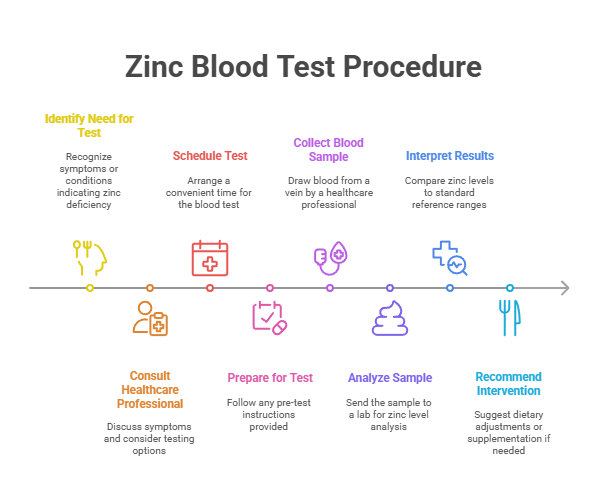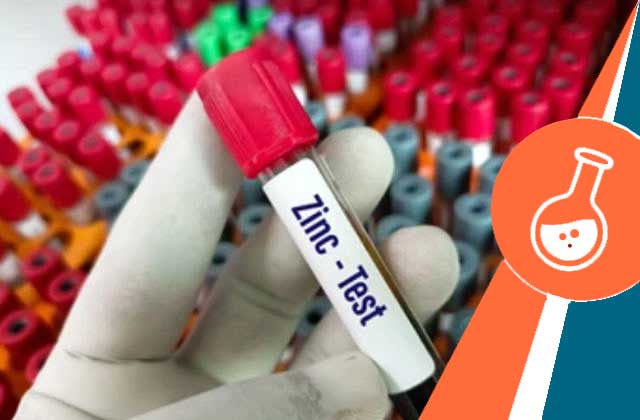
Zinc Blood Test and its Function
The Zinc blood test is commonly used to assess an individual’s zinc status and evaluate their nutritional adequacy. It helps determine if a person has sufficient levels of zinc in their body. Zinc deficiency can occur due to inadequate dietary intake, malabsorption, certain medical conditions, or increased zinc requirements (such as during pregnancy or lactation).
Conditions That May Require Zinc Blood Test
The Zinc blood test may be required or recommended in various situations where the assessment of zinc status is necessary. Some common conditions or circumstances that may require a Zinc blood test include:
- Suspected Zinc Deficiency: If an individual presents with symptoms and signs suggestive of zinc deficiency, such as growth retardation, delayed wound healing, skin rashes, hair loss, frequent infections, or altered taste perception, a Zinc blood test may be conducted to evaluate the zinc status. This is particularly relevant in populations at risk of zinc deficiency, such as individuals with poor dietary intake, malabsorption conditions (e.g., celiac disease), or certain medical conditions (e.g., sickle cell disease, gastrointestinal disorders).
- Monitoring Zinc Supplementation: For individuals who are receiving zinc supplementation to address zinc deficiency or manage specific medical conditions, periodic monitoring of zinc levels through the Zinc blood test may be necessary. This helps ensure that the zinc levels are being adequately replenished and maintained within the desired range.
- Evaluation of Certain Medical Conditions: Zinc plays a role in various physiological processes, and abnormal zinc levels can be associated with certain medical conditions. The Zinc blood test may be used in the evaluation of conditions such as chronic liver disease, malnutrition, certain autoimmune disorders, chronic diarrhea, alcoholism, Wilson’s disease (a genetic disorder affecting copper and zinc metabolism), and pancreatic insufficiency.
Zinc Blood Test Procedure
The Zinc Blood Test is a simple blood test that can be performed in a laboratory. Before the test, the patient may be asked to avoid certain medications that may affect the results. During the test, our healthcare professional will use a needle to draw blood from a vein in the patient’s arm. The blood sample will then be sent to our laboratory for analysis.
Interpreting Zinc Blood Test Results
Typically, a normal range for zinc in the blood is around 70-120 micrograms per deciliter (??g/dL) or 11-18 micromoles per liter (??mol/L).Low levels of zinc in the blood may indicate zinc deficiency. Zinc deficiency can occur due to inadequate dietary intake, malabsorption, certain medical conditions, or increased zinc requirements (such as during pregnancy or lactation).
More Related Tests
Why To Book with HealthCareOnTime

17 Crores+ Samples Processed

World Class Technology Labs

25+ Years of Trust & Experience

Free Home Collection
FAQs Around Zinc Blood Test
How much does Zinc Blood Test cost?
The Zinc Blood Test cost is Rs.1300, although it is now available for Rs.970 because of the offer.










